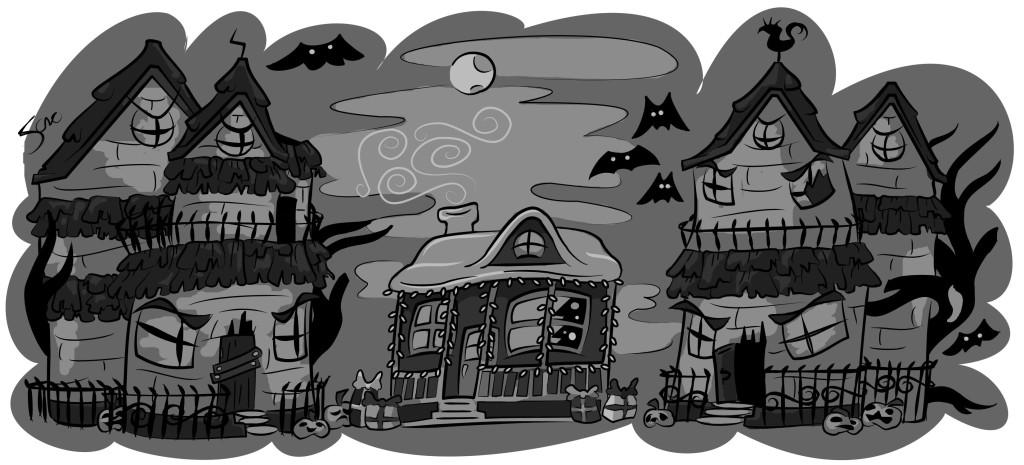The human body primarily needs three things to function: food, water and sleep. Students tend to be pretty good at satisfying two of these three. Sleep is a different story. So why is sleep, something the body actually requires in order to function, so hard to get enough of?
A possible reason is that school simply gets in the way of sleep. Requiring students to wake up in the wee hours of the morning in order to make it to first period before 7:45 a.m. casts it as a likely culprit.
In the morning, many students, like senior Collin Gustafson, are sleepy and drink coffee to keep from falling asleep.
“On a typical morning I am pretty tired when I wake up… If I do not drink coffee it is very hard to stay awake,” Gustafson said.
Attendance secretary Beverly Vesey said that many of the students she sees in the morning are drinking coffee from a variety of local coffee shops.
For other students it can be hard to focus in class because of their drowsiness.
Junior Jordan Binford relates.
“I have that weird spacing where I stare into one point and I forget about what I am doing,” Binford said.
However, there are legitimate scientific reasons for students struggling to get enough sleep.
The human body has something called a circadian rhythm, which acts as a biological clock that repeats itself roughly every 24 hours.
This rhythm signals the body to perform various functions at specific times of the day, such as tell the body when to rest or wake.
According to the National Sleep Foundation, teenagers’ circadian rhythms undergo a change that affects their sleeping habits.
“Changes to this circadian rhythm occur during adolescence, when most teens experience a sleep phase delay. This shift in teens’ circadian rhythm causes them to naturally feel alert later at night, making it difficult for them to fall asleep before 11 p.m.,” the National Sleep Foundation said in an article on their website titled “Sleep Drive and Your Body Clock.”
This becomes a problem when coupled with the early start time of school and other various student activities.
“Since most teens wake up early for school and other commitments, this sleep phase delay can make it difficult to get the sleep teens need — an average of 9 1/4 hours, but at least 8 1/2 hours,” the National Sleep Foundation said in that same article.
Students’ lack of sleep does not go unnoticed in the halls and classrooms. Chemistry teacher Angela Reed agrees that students need more rest.
“I do not think students get enough sleep at all,” Reed said.
Vesey even consults some students who struggle getting to school on time with questions of their sleeping habits.
“I once in a while ask people I see [tardy] all the time, ‘Have you tried going to bed earlier?’ And they tell me they have been up late,” Vesey said.
For many students, the first class of the day is the most difficult to stay awake in.
“First period [the students] are very quiet and in first period I have more tardies than in any other class,” Reed said.
In order to solve this issue, Binford suggests starting school later, if only by a small amount.
“Maybe start at 8 even and then we get out at 2:30. I liked junior high time… You get an extra 15 minutes to get ready in the morning,” Binford said.
Loosening up the school schedule could certainly allow for more students to sleep in later and could aid in the delayed rhythm of teenage sleep cycles but not everyone shares these sentiments.
Starting school later means ending school later as well and some don’t want school to encroach on their afternoon activities.
“I think school starts at a fine time… I work better in the afternoon so I prefer to do class earlier in the day and work in the afternoons,” Gustafson said.
The Puyallup School District has allotted a 90-minute late start on Wednesdays in the past. However, this year the delay was shortened to one hour and moved to Monday, a decision some students disagree with.
“I liked Wednesdays because it was a good break in the middle of the week and personally, cross country meets are on Wednesdays so I got to sleep in,” Binford said.
Although shortened, late start Mondays still give students an extra hour in the morning.
On the contrary, Reed questions its effectiveness as a tool to allow students to sleep in.
“What I think happens (but I don’t know) is [students] just stay up later on Sunday because they know they can sleep in an hour later,” Reed said.
According to Vesey, some students just aren’t used to waking up later than normal.
“I see more [late students on Mondays.] One of the reasons, they tell me, is because they forget to set their alarm so the alarm still goes of for the earlier time and when they reset it they fall asleep,” Vesey said.
When circadian rhythms and scholastic schedules conflict it certainly makes it harder to catch an ample amount of sleep.
Yet regardless of how tired students are, it seems they still manage to be warm and polite in the mornings.
“One of the things a lot of [late students] tell me is, ‘Have a good day.’ I think that is great coming from students,” Vesey said.



